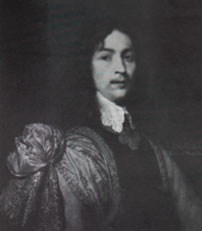Alexander Fitton facts for kids
Sir Alexander Fitton (1630?–1698) was an important Irish barrister and judge. He even became the Lord Chancellor of Ireland, which is a very high legal position. This was quite surprising because he had spent many years in prison due to a serious legal disagreement. He was also known by his special title, Baron Gawsworth.
Fitton was involved in a long-running dispute over a property called Gawsworth. He claimed the land belonged to his family, but another powerful person, Lord Gerard, also claimed it. The disagreement involved documents that were said to be fake. A court decided that one document Fitton relied on was indeed a fake. Even after a second hearing, the decision remained the same, and Lord Gerard took control of Gawsworth.
It's hard to know who was truly right in this old dispute. Both sides used documents that had not been seen before, which made things suspicious. Fitton then made a big mistake. He published a pamphlet, which was like a small book, saying that Lord Gerard had won the case by bribing people and threatening witnesses. He also claimed that a witness had admitted to lying in court.
At the time, saying such things about a Lord was a serious offense. The House of Lords (a powerful part of the government) took this very seriously. Fitton was fined a lot of money (£500) and sent to prison. He was supposed to stay there until he could prove his claims, but he never did. He might have stayed in prison for a long time, possibly until 1687. Later, Lord Gerard faced his own problems, which encouraged Fitton to try and get Gawsworth back one last time, but his attempt failed. However, this whole situation made the new King, James II, look kindly on Fitton.

Becoming Lord Chancellor
In 1687, the Irish Lord Chancellor, Sir Charles Porter, was removed from his job. This happened because he disagreed with King James II's ideas about religious freedom. Even though another lawyer, Richard Nagle, wanted the job, King James II chose Fitton. Fitton was a Protestant, but he decided to become a Roman Catholic to please the King.
Fitton's salary was increased, and he received a large one-time payment. He was also given a knighthood, which meant he could be called "Sir." As Lord Chancellor, Fitton was in charge of the legal system in Ireland. Some people accused him of being unfair and biased against Protestants. However, some historians today believe these accusations might not be completely true.
When King James II came to Ireland, Fitton led the Patriot Parliament in 1689. He was given the title of baron and chose to be called Baron Fitton of Gawsworth. After King James II left Ireland following the Battle of the Boyne, Fitton was appointed a Lord Justice of Ireland. This meant he helped govern Ireland in the King's absence. The next year, Fitton joined King James II in France. He died there in 1698.
What People Thought of Him
Many people, both at the time and later, had strong opinions about Sir Alexander Fitton. A famous historian named Thomas Macaulay thought Fitton was not very good at law and lacked common sense. Macaulay believed Fitton was not fit for any important job, especially because of his time in prison and the suspicions about him making fake documents.
William King, who was the Archbishop of Dublin and knew Fitton personally, said that Fitton struggled to understand difficult legal cases. He believed Fitton often made decisions based on his own feelings rather than the facts.
However, not everyone agreed. A writer named O'Flanagan, in 1870, had a more positive view. He looked at Fitton's legal decisions and found no proof that Fitton was ignorant or unable to do his job. In fact, O'Flanagan thought Fitton's work looked like that of an experienced judge.
Regarding the accusations of making fake documents, it's possible that both Fitton and Lord Gerard were involved in such actions. One historian noted that Fitton's character, even if it was bad, was probably no worse than Lord Gerard's.
 | Emma Amos |
 | Edward Mitchell Bannister |
 | Larry D. Alexander |
 | Ernie Barnes |

